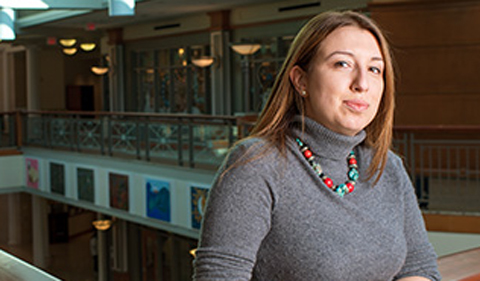The Contemporary History Institute welcomes Ohio University’s Dr. Nukhet Sandal speaking on “Religious Leaders and Conflict Transformation: Northern Ireland and Beyond” on Thursday, Jan. 18, in Baker 242 at 4:30 p.m.
Sandal is Associate Professor of Political Sciences and Director of Global Studies. Shel earned a Ph.D. in Politics and International Relations from University of Southern California in 2010, and she was a postdoctoral fellow at the Watson Institute of International Studies at Brown University from 2010-13. She has published articles in the European Journal of International Relations, International Politics, Review of International Studies, Alternatives, Political Studies, West European Politics, Human Rights Quarterly, and Canadian Journal of Political Science. She is the author of Religious Leaders and Conflict Transformation (Cambridge University Press, 2017) and Religion and International Relations Theory (with Jonathan Fox; Routledge, 2013).

Dr. Nukhet Sandal
Sandal is the Chair of the Religion and International Relations Section of the International Studies Association, and she served as the chair of the Ethnicity, Nationalism and Migration Section from 2015-17. She is the recipient of the 2017 University Professor Award and 2016 Jeanette G. Grasselli Brown Faculty Teaching Award at Ohio University.
Abstract: Religious dimension of contemporary conflicts and the rise of faith-based movements worldwide require policymakers to identify the channels through which religious leaders can play a constructive role. While religious fundamentalisms are in the news every day, we do not hear about the potential and actual role of religious actors in creating a peaceful and just society. Countering this trend, Sandal draws attention to how religious actors helped prepare the ground for stabilizing political initiatives, ranging from abolition of apartheid (South Africa), to the signing of the Lome Peace Agreement (Sierra Leone). Taking Northern Ireland as a theory building case and using declarations and speeches of more than forty years, she introduces a new theoretical perspective that recognizes the religious actors’ agency, showing how religious actors can have an impact on public opinion and policy making in today’s world.
This event is free and open to the public.



















Comments